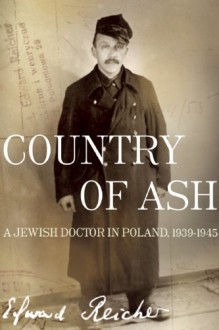Stirring” Jewish Daily ForwardIt’s the rough texture of Reicher’s talelike grainy celluloid from a bygone erathat gives such a powerful, deeply disturbing immediacy to the ghetto inhabitants he remembers. Reicher tells us they’re no more, but he is wrong. Their ghosts still walk in books...
show more
Stirring” Jewish Daily ForwardIt’s the rough texture of Reicher’s talelike grainy celluloid from a bygone erathat gives such a powerful, deeply disturbing immediacy to the ghetto inhabitants he remembers. Reicher tells us they’re no more, but he is wrong. Their ghosts still walk in books like this onehaunting the reader, forever.” Milwaukee Journal SentinelDr. Reicher’s memoir tells a gripping, tragic, unforgettable tale that, like Wladyslaw Szpilman’s The Pianist, recounts the horrors of being a Jew in Poland during World War II. This important historical document distinguishes itself from other Holocaust narratives in many ways, but perhaps in none more so than this: its perseverant hero not only saved his wife and daughter but helped bring one of the most notorious Nazis of all to justice.” AUSTIN RATNER, Sami Rohr Prize for Jewish Literature-winning author of The Jump Artist and In the Land of the LivingCountry of Ash is the starkly compelling, original chronicle of a Jewish doctor who miraculously survived near-certain death, first inside the Lodz and Warsaw ghettoes, where he was forced to treat the Gestapo, then on the Aryan side of Warsaw, where he hid under numerous disguises. He clandestinely recorded the terrible events he witnessed, but his manuscript disappeared during the Warsaw Ghetto Uprising. After the war, reunited with his wife and young daughter, he rewrote his story.Peopled with historical figures like the controversial Chaim Rumkowski, who fancied himself a king of the Jews, to infamous Nazi commanders and dozens of Jews and non-Jews who played cat and mouse with death throughout the war, Reicher’s memoir is about a community faced with extinction and the chance decisions and strokes of luck that kept a few stunned souls alive.Edward Reicher (19001975) was born in Lodz, Poland. He graduated with a degree in medicine from the University of Warsaw, later studied dermatology in Paris and Vienna, and practiced in Lodz as a dermatologist and venereal disease specialist both before and after World War II. A Jewish survivor of Nazi-occupied Poland, Reicher appeared at a tribunal in Salzburg to identify Hermann Höfle and give an eyewitness account of Höfle’s role in Operation Reinhard, which sent hundreds of thousands to their deaths in the Polish concentration camps.Country of Ash, first published posthumously in France, was translated from the French by Magda Bogin and includes a foreword by Edward Reicher’s daughter Elisabeth Bizouard-Reicher.
show less

